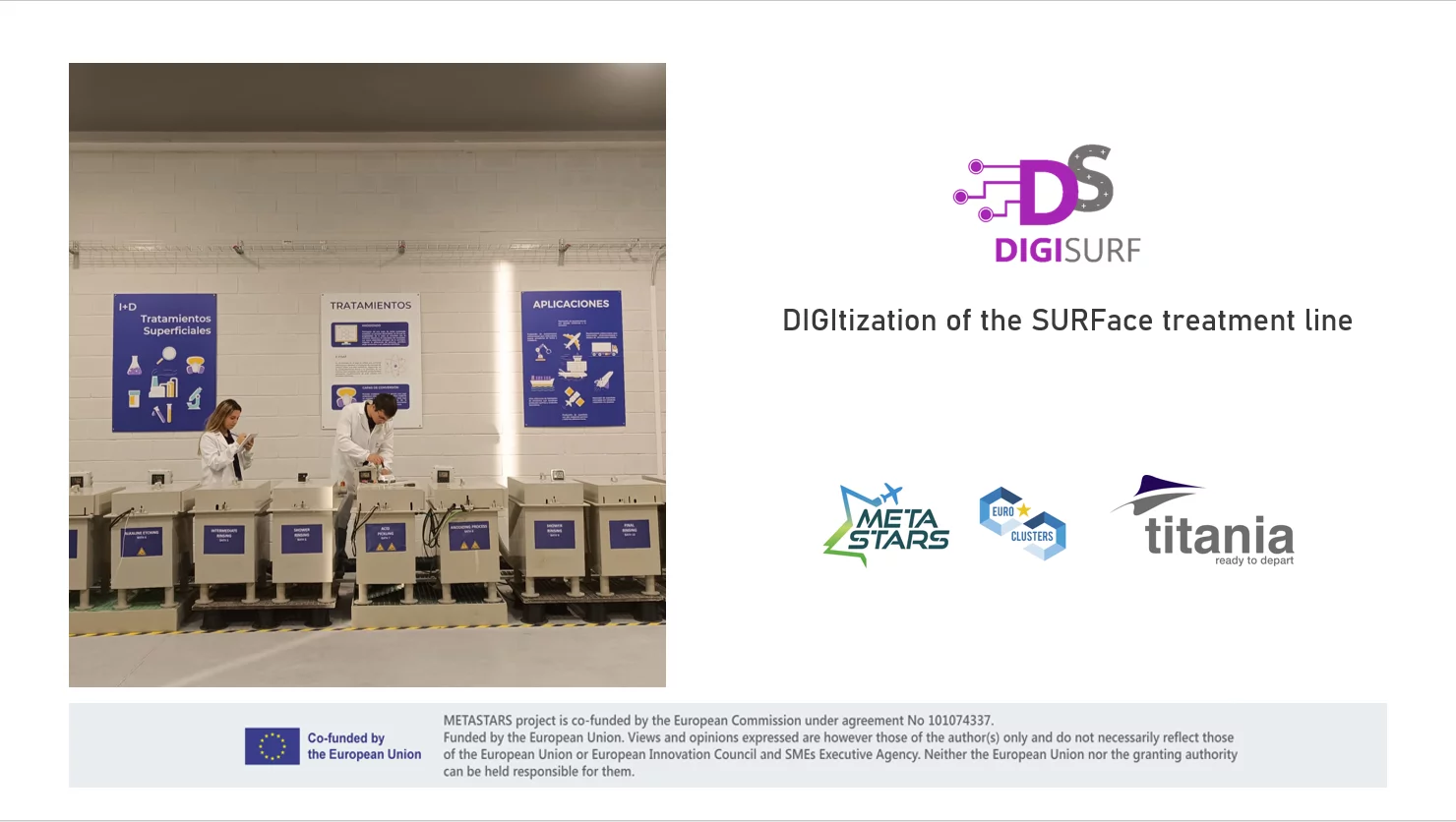
In September 2023 Titania was awarded the DIGISURF project: “Digitalisation of the surface treatment line”. This project aims to improve process control in the surface treatment line of the company’s research and development (R&D) area through digitalisation, thanks to a system of micro-controllers connected to the bath line.
The aim of this system is to automate the processes that are currently carried out manually by the technical staff of the bath line, such as, for example, the control of the timing of each process, the temperature, the current applied, etc., integrating all of these aspects within the laboratory’s management system.
DIGISURF aims to help the company gain experience in the digitalisation of processes, one of the innovation paths most widely followed today by thousands of companies in a multitude of sectors.
This challenge is divided into two main tasks:
Developing the electronic control part by using micro-controllers and associated equipment to carry out the surface treatment line control tasks. Furthermore, a synoptic control panel will be developed to enable visualisation of the data in real time, as well as the initiation of processes (heating baths, starting manufacturing batches, etc.).
Integrating the new process into the company’s management system.. Another key aspect of the project is the connection between the line control system and the company’s internal platform, which will speed up the generation of reports on manufacturing batches and facilitate access to historical data for further analysis.
An internal multidisciplinary team has been set up to address this challenge involving the R&D department (responsible for project coordination and electronics), the IT department (responsible for integration into the company’s management system) and the maintenance department (responsible for supporting the physical installation of the elements).
In future, the results of the project will be transferred to the production surface treatment line, where the benefits derived from this development will be maximised.
This project is part of the INNOVATION PROJECTS call financed by the European METASTARS Project and co-funded by the European Commission.


